Reflections from the Bogotá Ministerial Conference
For those of us who have been working to prevent violence against children (VAC) for a long time, the First Global Ministerial Conference on Ending Violence against Children in Bogotá, Colombia in November was a milestone event.
Delegates from more than 130 countries converged to address the issue and more than 100 governments made pledges to take action. The Coalition for Good Schools had a strong presence in this space and below we highlight our key takeaways:
Recognition of Progress
From the opening plenary to the closing ceremony, a wide range of speakers emphasized the fact that there is momentum behind this work. As a global community, we have begun to take measure of this problem, have identified effective responses, governments have begun to step up with pledges to act, and the will to see this work through to tangible outcomes in children’s lives was clearly visible.
Scale and urgency
There was recognition that we needed to reach a larger number of children with effective interventions. Our strategies need to be forward looking and sensitive to considerations of scale and efficiency. We could no longer rest on an incremental approach but need interventions that are ambitious and demonstrably effective.
Systemic interventions
There was a growing recognition that if we want impact at scale, the work needs to address systems that surround children’s lives and determine their outcomes. The entire social ecosystem needs enrichment with ideas and strategies and reinforced with longer term commitments. There was affirmation that governments need to be leaders and underwriters of larger scale interventions, and our attention should be laser-focused on producing expeditious outcomes in children’s lives.
The education sector can deliver outcomes at scale
There was a broad consensus that the education sector is the most salient system in the lives of children, and for multiple reasons, there is a strategic imperative to lean heavily on this entry point for VAC prevention.
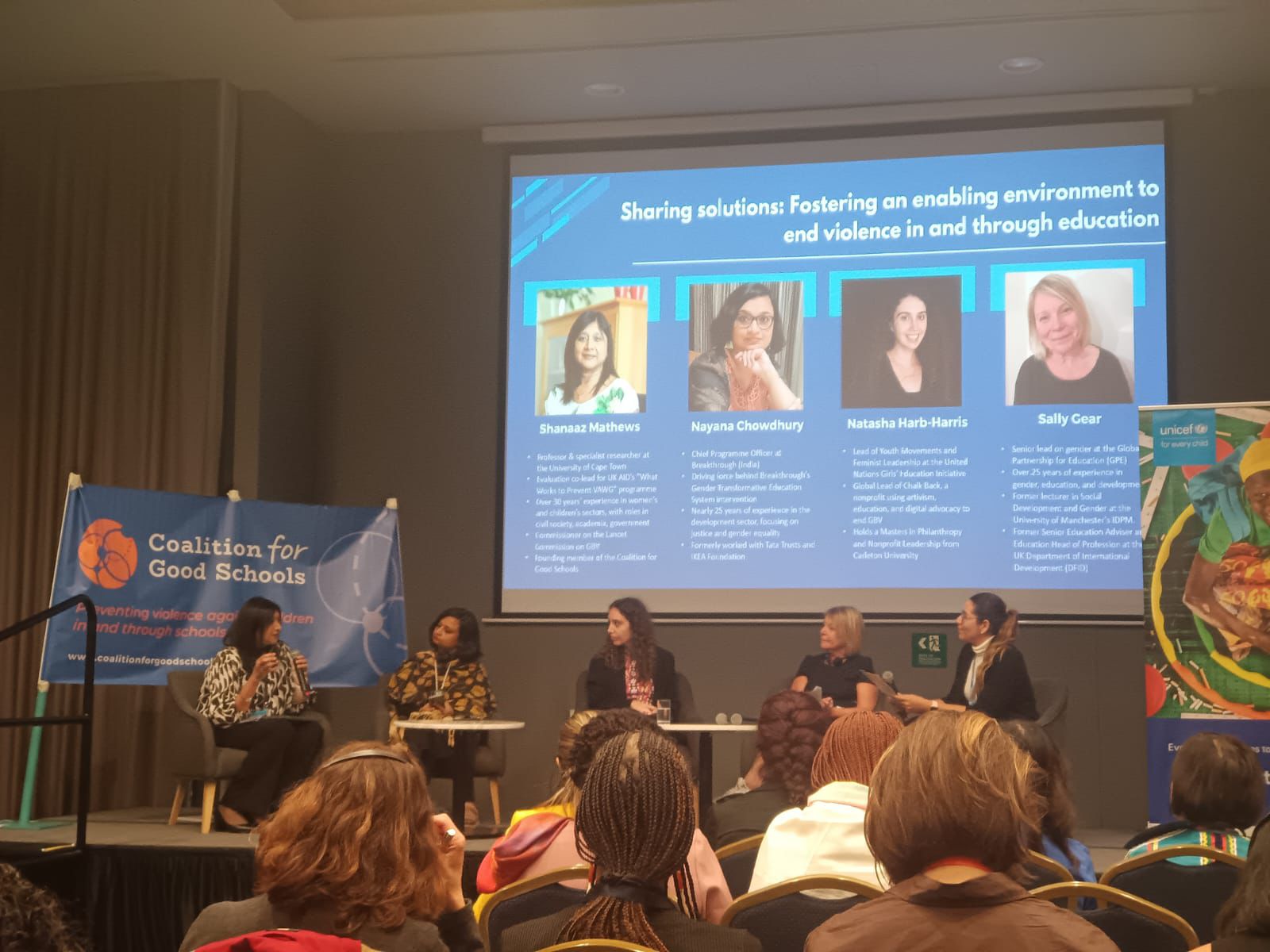
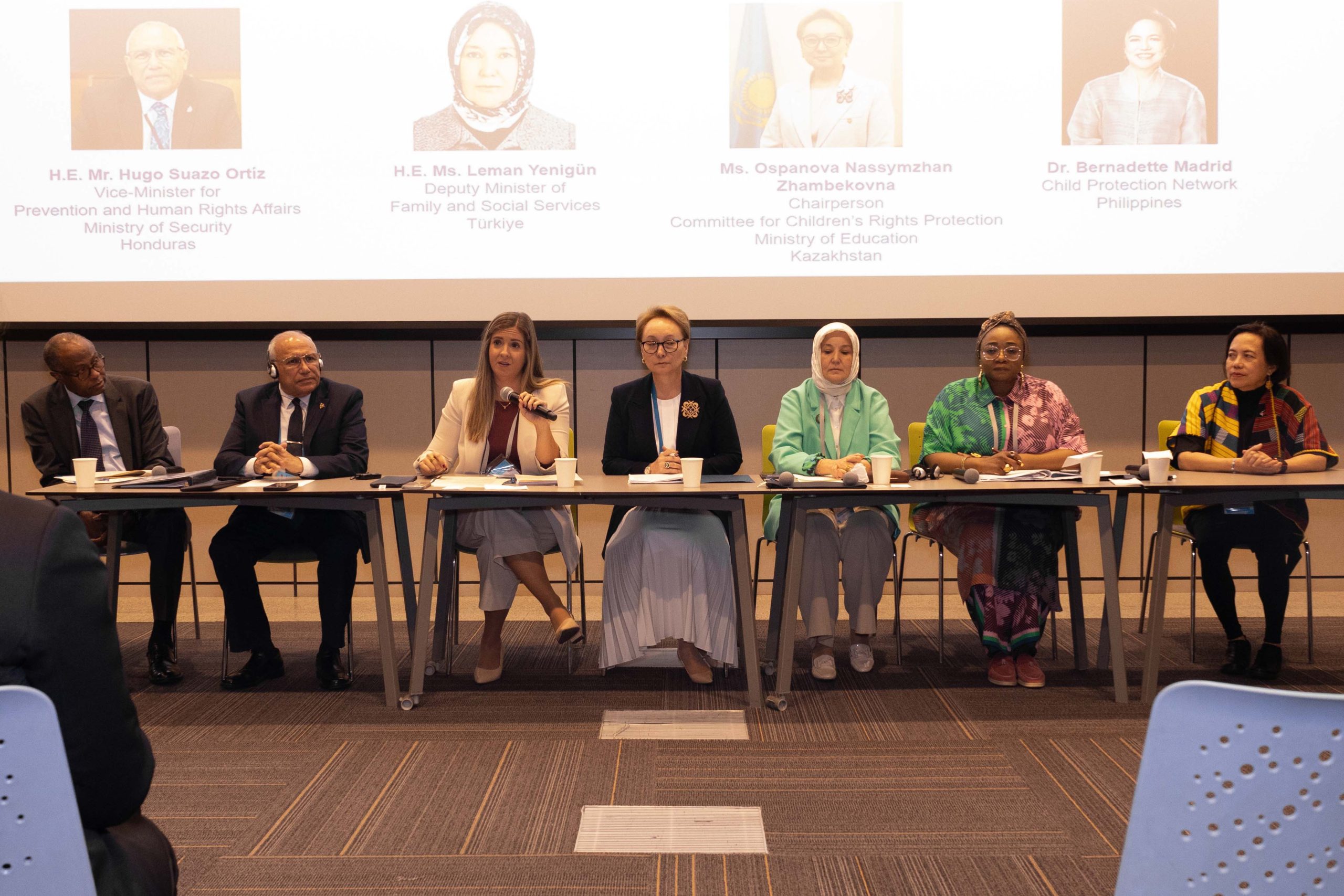
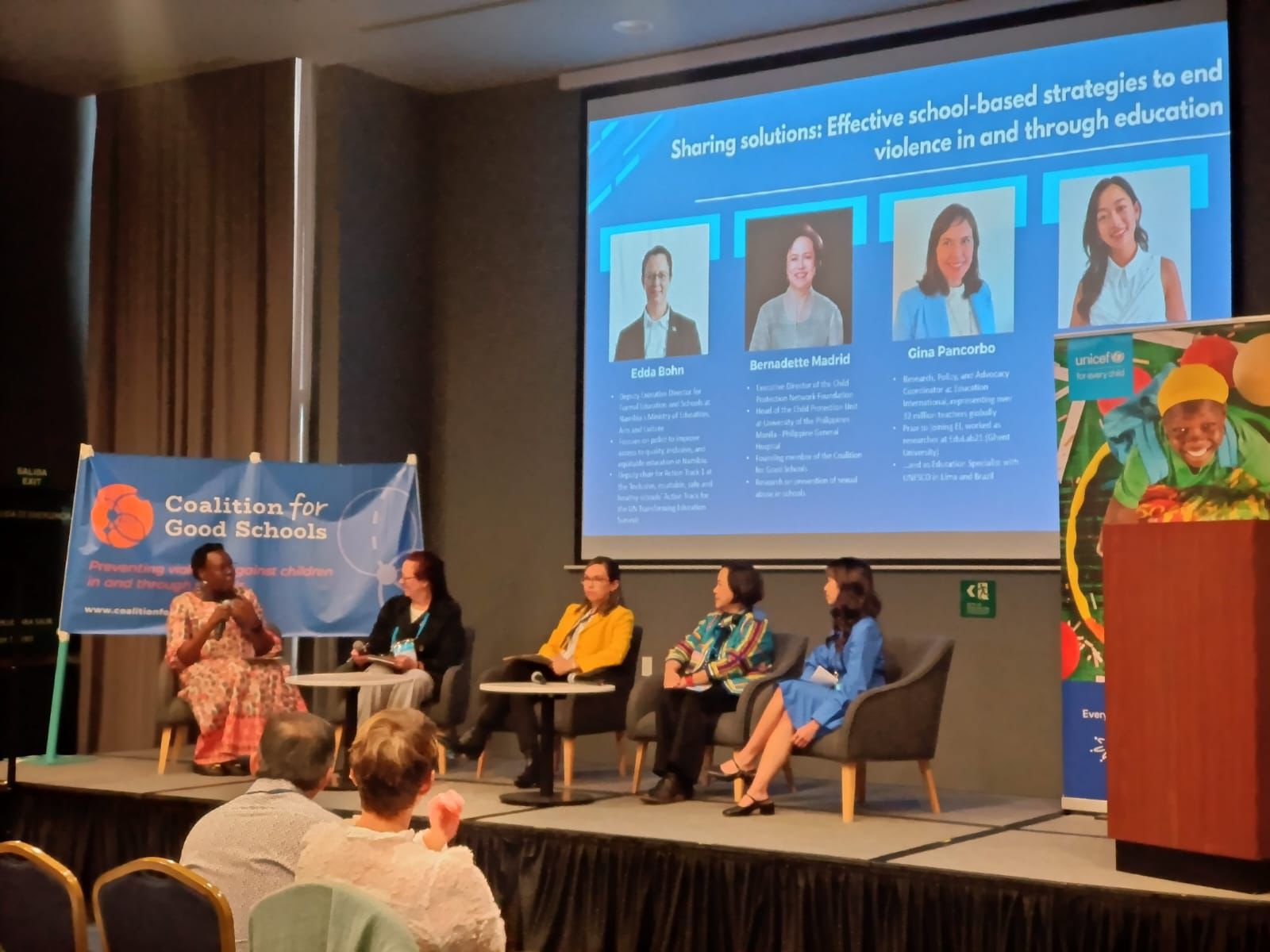
Learning from a growing field
Beyond these field building ideas, there were opportunities to learn about innovations and efforts in satellite and parallel events. There was consensus that as a field, we need bold ideas, thoughtful experimentation and tracking of progress with tight feedback loops. There is a steep learning curve ahead of us and yet there was a sense of possibilities, if we seize them.
However, the convening was not a flawless one, and much could be learned about how the decision making about the structure of the event could be a more inclusive process, and that a more diverse set of voices could be showcased in leadership roles in plenaries and in satellite discussions. One wonders what we might have heard if even one out of the six plenaries were entirely handed over to children, or the frontline practitioners who have provided intellectual leadership in designing and producing solutions. Nevertheless, this was a seminal event, and one filled with excitement and a promise of action to follow. Below we highlight the flavor of the types of commitments made.
From Africa, Uganda made specific pledges including to roll out the Good School Toolkit nationally by 2030. Gambia, Nigeria and Guinea plan to incorporate anti-bullying and positive discipline initiatives directly into pre-service teacher training by 2030. Eswatini committed to training 800 teachers on positive discipline guidelines, Kenya will design and implement school safety program by 2030 and has a costed a national-scale plan to end all VAC. Namibia made strong commitments to implementing National Safe Schools Framework, and Tanzania pledged to have Child Protection Desks in 25,000 schools.
From Asia, Cambodia made commitments to scale programming for positive discipline in school. Sri Lanka pledged to ban corporal punishment in all settings by mid-2025 and Timor-Leste committed to mandatory in-service and pre-service training on positive discipline. Nepal pledged a cross-sectoral mechanism that looks at the role education sector can play in ending violence.
From Latin America and Caribbean, Jamaica pledged to scale a school-based VAC prevention program to 75% of the country. Brazil committed to developing a pedagogical tool for teachers by 2026, and Costa Rica to increase inter-sectoral collaboration to ensure safe learning environments.
Pledges from CSOs included Global South actors REPSSI Uganda, Valientes Colombia, Stop Child Cruelty Trust in Sri Lanka and others. See CSO pledges.
Beyond the commitments announced by governments, CIFF a philanthropic fund based in London, announced a new investment of 125 million USD for preventing VAC.
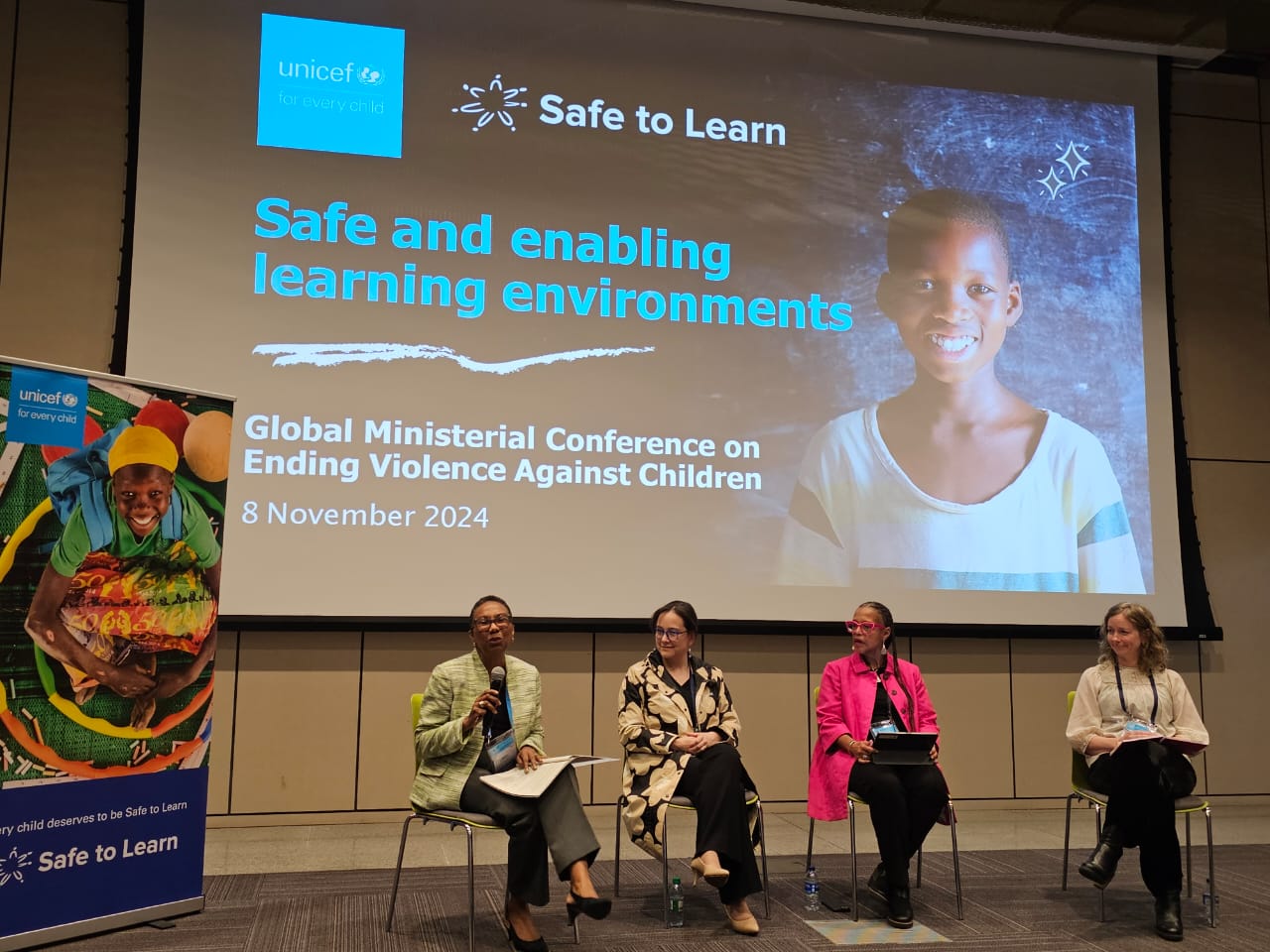
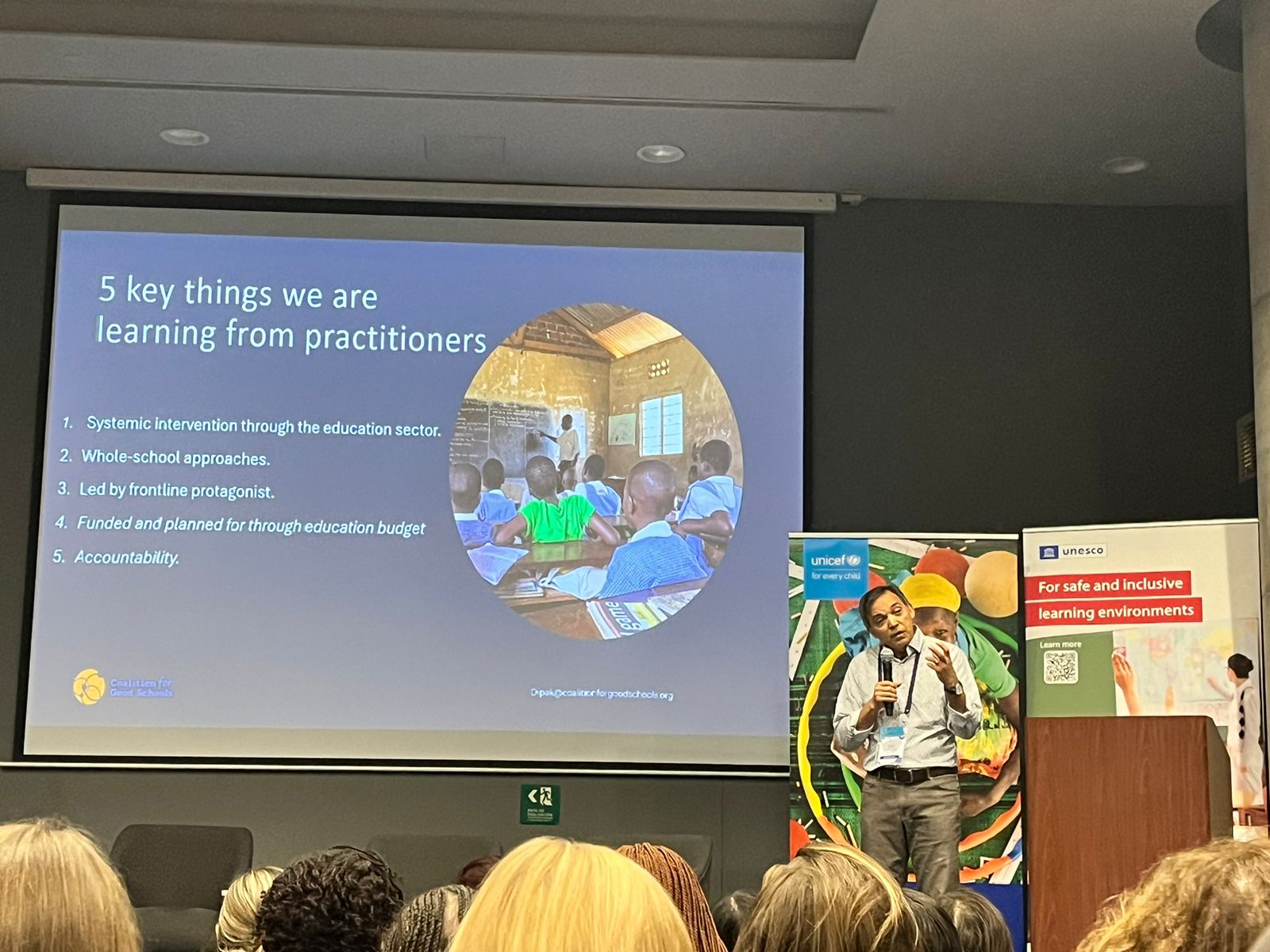
Satellite and parallel sessions that built the conversation
Our main satellite event, “Violence Prevention is Education’s Business Too” was filled to capacity and included diverse civil society actors, key allies such as Global Directors for Child Protection at UNICEF, influential decision makers at the Global Partnership for Education, senior Ministry officials from Colombia, as well as funders including CIFF. This event fore-fronted presentations by several Coalition members and leaders of this movement in the Global South, including Stella Ayo Odongo, Bernadette Madrid, Nayana Chowdhury and Dipak Naker.
The African Partnership to End Violence Against Children (APEVAC) and the Coalition, led by Coalition member Saba Lishan and with participation of Africa Hub leaders Hope Wambi and Stella Ayo-Odongo, also hosted a packed event highlighting the progress and commitment on preventing VAC in Africa.
In a side event, co-hosted by the Coalition for Good Schools, Safe to Learn and UNESCO, and moderated by Dipak Naker, we saw explicit endorsement from senior officials within FCDO, GPE, UNICEF and government representatives from several countries for prevention of VAC in and through schools.
In a parallel event addressing why safe and enabling learning environments matter, Latin America Hub Coordinator Lina Maria-Saldarriaga, Ph.D. and key ally from London School of Hygiene & Tropical Medicine, Dr. Karen Devries, along with Krista Riddley of Wellspring Philanthropy, made a strong case that was moderated by Shamah Bulangis, an Asia Hub member from Thailand.
INSPIRE’s side event featured a discussion on whole school approaches and taking ideas to scale in Uganda. Parallel events focusing on Latin America spoke to schools as an entry point for violence prevention work, and another side event hosted by UNICEF Innocenti Center, What Works and WHO, featured Coalition co-founder Shanaaz Mathews speaking to the importance of discursive thinking when working to prevent VAC and violence against women (VAW).
